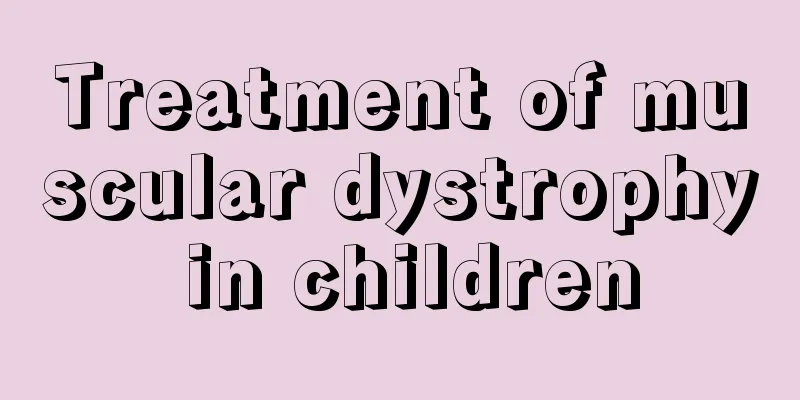What is the best age for children to have their teeth corrected?

|
Teeth are a very important organ for the human body and have many uses, such as chewing food, assisting pronunciation, protecting the human oral cavity, etc. However, many people have crooked teeth, which not only affects the appearance but may also cause other problems. Therefore, it needs to be corrected in time. So what is the best age for children to correct their teeth? Let's introduce it below. The best time for children to correct their teeth: 1. Primary Teeth Period At this stage, since the teeth have not yet been fixed, children's teeth are prone to forming overbite, so early intervention by parents is very necessary. Once bad habits of children are discovered, they should be corrected in time to reduce the probability of deformed teeth. Second, the tooth replacement period Most children will lick their teeth out of curiosity or itchy gums, and like to shake their teeth with their hands during the tooth replacement process. These habits can easily cause functional or skeletal malocclusion. Therefore, during the tooth replacement stage, it is important to emphasize to children not to pay too much attention to their teeth, not to touch their teeth with their hands or lick them constantly. 3. Early permanent teeth The early stages of permanent teeth are different for boys and girls, usually between 11-14 years old for girls and 13-15 years old for boys. If the child's dental condition is serious during this period, it is the best stage for orthodontic treatment. The permanent teeth have already erupted and are basically fixed, but the gums are not fully fixed in the early stages of permanent teeth and are continuing to develop and grow. Therefore, at this stage, correction through medical means based on the teeth's own remodeling ability is beneficial to the development of teeth to the best level. 4. Permanent Teeth Stage The growth and development of teeth basically stops after the age of 15. Orthodontic treatment itself relies on high-intensity external force to move teeth and change the arrangement of teeth, but it also needs to follow the teeth's own remodeling ability, which takes even longer. 5. After adulthood: 12-18 years old: At this time, tooth replacement has basically been completed, and the child is at the peak of growth and development. Orthodontic treatment during this period is short and has good therapeutic effects. Adults over 18 years old: The development of orthodontics has long broken through the age limit. If you miss the best age for orthodontics, don’t worry. In adulthood, bone development has been completed, so the time for tooth correction may be longer and the correction method may be more troublesome, but it can still achieve very good correction results. Special uneven teeth - overbite. Overbite is a special type of tooth misalignment, which involves both teeth and jaw conditions, and requires many considerations during correction. The peak period of jaw development is between the ages of 6 and 12. The deciduous teeth begin to fall out and the permanent teeth gradually erupt. The jaw development is unstable and prone to changes, so interventional correction of overbite during this period can guide the development of the maxillofacial region to normal. |
<<: What should I do if a child has swollen lymph nodes behind his ears?
>>: What are the symptoms of intestinal necrosis in babies?
Recommend
White streaks in baby's stool
Many babies will not say when they are sick. They...
What to do if your baby's feet are swollen
There are many reasons for swollen feet. When you...
What is the order of adding complementary food to babies?
Babies can be given complementary foods when they...
How to prevent your child from spitting up
In life, many parents will find that their babies...
The harm of sudden lack of urine in babies
Many parents find that their babies suddenly urin...
What are the signs of good intellectual development in a three-year-old baby?
Teachers once said that there are no stupid peopl...
What are the symptoms of pituitary hypoplasia?
Pituitary hypoplasia may manifest as mental retar...
What causes red and swollen eyes in children?
Red and swollen eyes are a common symptom in chil...
Will children get angry if they drink milk powder?
Many children will choose to drink some breast mi...
How to improve children's immunity
I believe everyone knows the importance of resist...
Treatment of fever and cough in three-year-old baby
When a three-year-old baby at home has a fever an...
What to eat when your baby has symptoms of iron deficiency
The main reason why people use iron pans when coo...
What causes cramps in children?
Cramps are a symptom that many people now often e...
What is the saying about whether babies should use pillows?
We adults must use pillows when we sleep, because...
Newborn drooling and blowing bubbles
Many first-time mothers are very curious about th...









